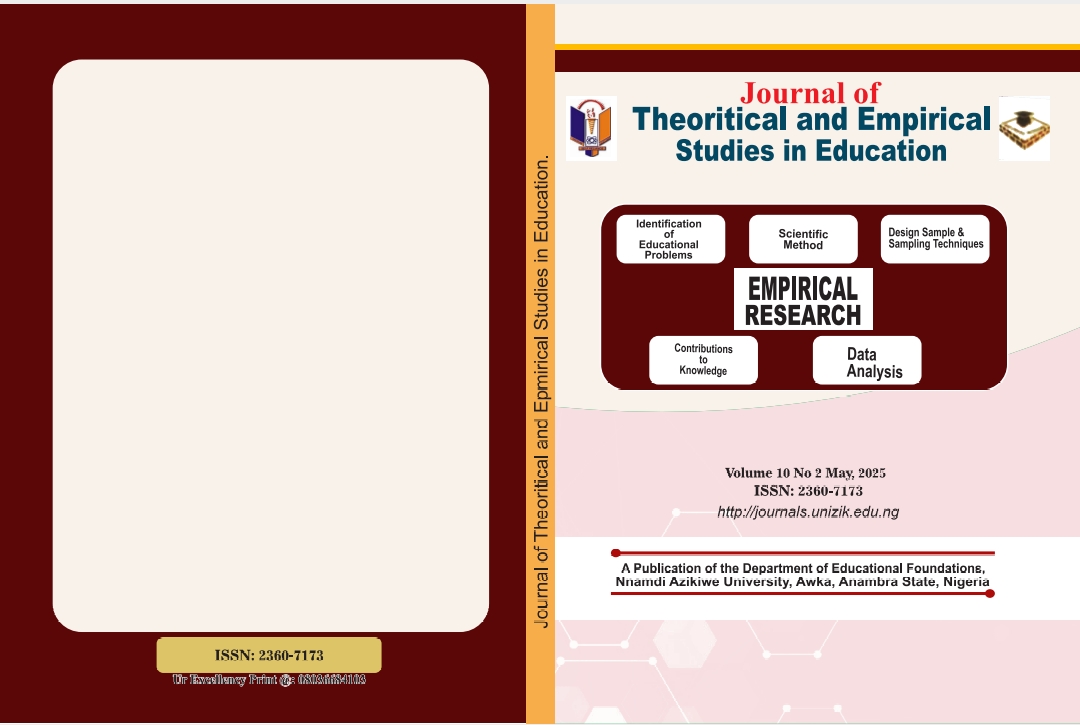EFFECTS OF FUEL SUBSIDY REMOVAL ON CONSUMPTION BEHAVIOUR AND SOCIO-ECONOMIC WELLBEING OF PRIMARY SCHOOL TEACHERS IN NIGERIA
Keywords:
consumption behaviour, fuel subsidy, palliatives, socio-economic wellbeingAbstract
The study examined the effects of fuel subsidy removal on consumption
behaviour and socio-economic well-being of primary school teachers in Nigeria
using the theoretical research design. The study is anchored on the Social
Exchange theory which views consumption behaviour as a form of social
exchange where individuals weigh the costs and benefits of their consumption
decisions. The paper observed that the removal of fuel subsidy has remained a
controversial issue in Nigeria with strong arguments for and against the policy.
What is clear, however, is that this policy has had a significant impact on the
consumption behaviour and socio-economic wellbeing of primary school
teachers in Nigeria. The paper identified some of the changes in consumption
behaviour of the populace, occasioned by the removal of subsidy. These include,
but not limited to a sharp decrease in disposable income which has led to a
significant cut back on spending, inability to eat balanced diet as a result of
soaring prices of food items, and inability to afford transportation cost, due to
high prices of fuel. Other changes in consumption behaviour resulting from
subsidy removal include panic buying and hoarding of petroleum products and
food items, increase in demand for alternative sources of energy, and a sharp
increase in general cost of living. The paper also observed that the removal of
fuel subsidy will likely lead to a decrease in investment and a slowdown in
economic growth. The paper concluded that the removal of fuel subsidy has
adversely affected the socio-economic well-being of Nigerian workers
particularly primary school teachers. As a result of this, it was advocated that the
government put in place sustained palliative to cushion the effects of subsidy
removal on teachers. These should include a significant increase in minimum
wage of Nigerian workers, prompt and regular payment of salaries, a review of
the multiple taxation policy, and the provision of basic amenities such as good
roads, access to quality health care, among other things.




